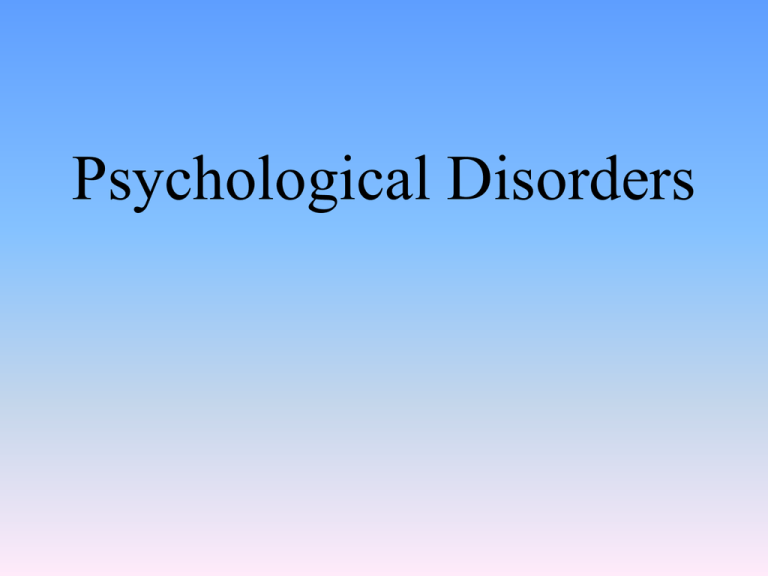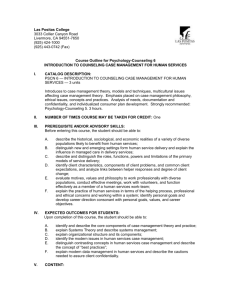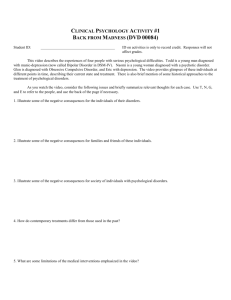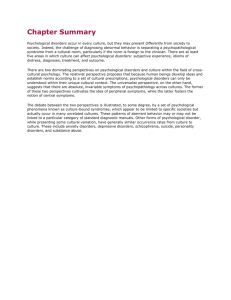Psychological Disorders
advertisement

Psychological Disorders Defining Disorder Psychological Disorder • A “harmful dysfunction” in which behaviors are maladaptive, unjustifiable, disturbing, and atypical Maladaptive • An exaggeration of normal, acceptable behaviors • Destructive to oneself or others Unjustifiable • A behavior which does not have a rational basis Disturbing • A behavior which is troublesome to other people Atypical • A behavior so different from other people’s behavior that it violates a norm • Norms vary from culture to culture MUDA • A mnemonic device used to remember the four attributes of a psychological disorder – Maladaptive – Unjustifiable – Disturbing – Atypical Understanding Disorders Early Views of Mental Illness • In ancient times, mental illness was usually explained through a supernatural model; the person was possessed or a sinner • During the Middle Ages treatment methods were inhumane and cruel Philippe Pinel (1745-1826) • French physician who worked to reform the treatment of people with mental disorders • Encouraged more humane treatment Understanding Disorders: The Medical Model The Medical Model • Concept that mental illnesses have physical causes that can be diagnosed, treated, and in most cases, cured. • Psychological disorders can be diagnosed based on their symptoms and treated or cured through therapy. • Psychological disorders are similar to a physical illness. Understanding Disorders: The Bio-Psycho-Social Model Bio-Psycho-Social Model • Contemporary perspective that assumes biological, psychological, and sociocultural factors combine and interact to produce psychological disorders Bio-Psycho-Social Perspective Classifying Disorders DSM-IV-TR • Diagnostic and Statistical Manual of Mental Disorders – Fourth Edition • The text of the DSMIV was recently revised, hence “TR” at the end DSM-IV-TR Published by the American Psychiatric Association • Lists and describes all the currently accepted categories of mental disorders DSM-IV-TR • Divides mental disorders into 17 major categories • Includes the symptoms but not the causes of each disease • Has changed significantly since the first edition DSM-IV-TR Axis DSM-IV-TR Axis DSM-IV-TR Axis DSM-IV-TR Axis Labeling Disorders Labeling Stigmas • Studies show a clear bias against people diagnosed with mental disorders.





